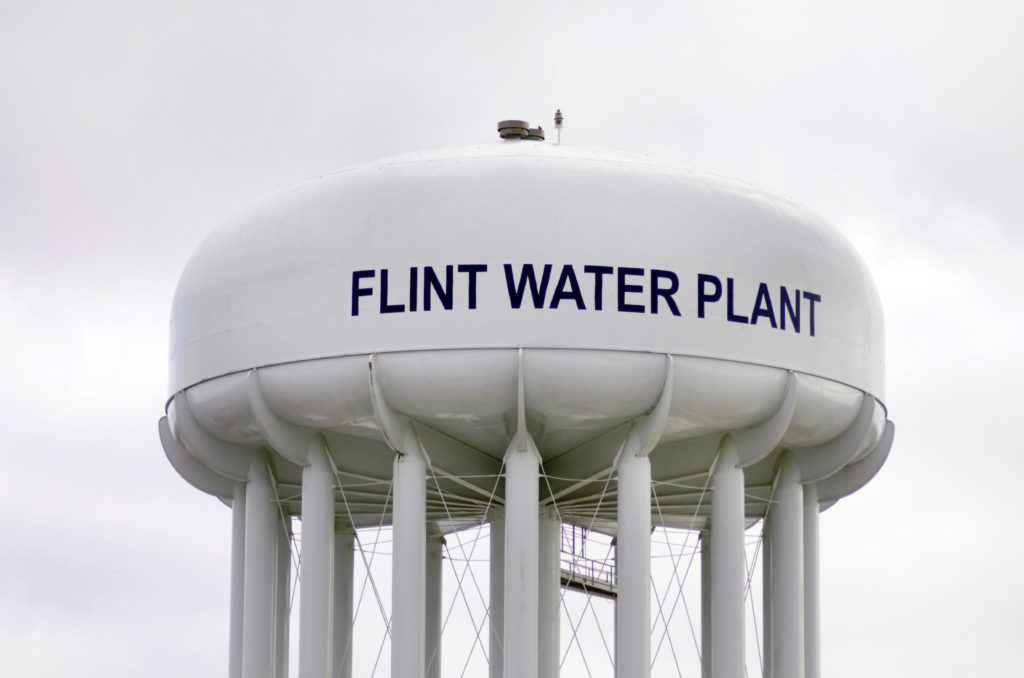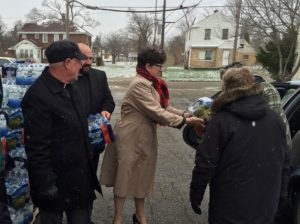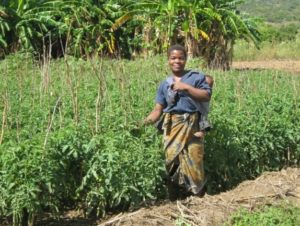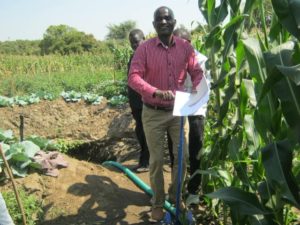World Food Day is a day of action against hunger.
On October 16, people around the world come together to declare their commitment to eradicate hunger in our lifetime. Because when it comes to hunger, the only acceptable number in the world is zero.
Each year, people around the world mark World Food Day as a special occasion to take action, learn more and join together to fight hunger. World Food Day 2016 falls on a Sunday, giving Christians concerned about hunger a special opportunity to worship, pray and serve together. Below are some suggestions for actions your congregation can take.
GIVE
ELCA World Hunger supports projects in nearly 60 countries, including the United States. These projects include job training programs, food pantries, agricultural training, health promotion and care, and much more. Together, our Church accompanies communities around the world toward a world of justice where all will be fed. Prayerfully consider supporting ELCA World Hunger with your gifts. Visit https://community.elca.org/hungerdonate to make a gift.
World Food Day 2016 is on Sunday October 16. Use the occasion to host a special offering for ELCA World Hunger in your congregation. Order posters and envelopes at http://resources.elca.org/Products-Hunger.html. You can also use a blessing like the one below to dedicate your offerings to the work God is doing through the ELCA.
Blessing of Offering
Abundant God, all creation displays your goodness. For the hungry, you provide food. For the thirsty, you give water. To the wandering, you promise a home. You have blessed us with your gifts that we may be your hands and feet to share these gifts with our neighbors. Bless these offerings, that they may be signs of your grace in our world. As we share with others, keep us mindful of our own need – for food, water, shelter, and community. May our gifts be an invitation to deeper relationship with each other and with you. In the name of Jesus Christ, your gift to the world, Amen.
ADVOCATE
Last year, ELCA Advocacy, Lutherans across the Church and ecumenical and interfaith partners across the US joined together to advocate for the Global Food Security Act. After long months of advocacy and policy negotiations, the Global Food Security Act is now a law. Together with partners, ELCA Advocacy worked tirelessly on this legislation for nearly two years, and we are grateful to see that all our prayerful efforts have led to this moment. The Global Food Security Act means the U.S. will be better equipped to combat food insecurity around the world. THANK YOU FOR YOUR ADVOCACY!
But our work is far from over. Sign up for e-advocacy alerts at ELCA.org/advocacy to learn more about the important work of ELCA Advocacy and to be part of a voice for justice for all.
LEARN
This year’s message for World Food Day is “Climate is changing. Food and agriculture must, too.” Host an education event at your church to help others learn more about climate change’s effect on hunger. You can download a communication toolkit, posters and other resources from the Food and Agriculture Organization of the United Nations here: goo.gl/OFcz6D .
To learn more about projects supported by ELCA World Hunger that are responding to a changing climate, read “Three Ways ‘The Poor’ and Communities of Faith Are Leading the Way on Climate Change” on Huffington Post – goo.gl/L3MtiH.
Also, check out these resources from ELCA World Hunger and our partners:
Rooted in God’s Word and Lands: A Celebration of the Earth That Nourishes Us
This resource from Creation Justice Ministries encourages Christians to treat land as the special gift that it is. It has ideas for sermons, Sunday School activities, and adult study and contemplation exercises. Download it for free at goo.gl/kjT5P6.
Sustainable Food in a Changing Climate
This 2015 resource from Creation Justice Ministries offers prayers and liturgies for worship, ideas for educational programs, and suggestions for personal food choices that raise awareness about and encourage action toward sustainable choices about the foods we eat. Download it for free at goo.gl/KxddNC.
Just Climate: Study Guide for Adult Christian Education
Creation Justice Ministries’ popular 2008 resource is as relevant today as it was when it was first released. This three-session study guide is perfect for audiences new to studying climate change. It has discussion and reflection questions, a leader’s guide to the issues, and fact sheets on several countries to help your group see the concrete effects of climate change around the world and in the United States. Download it for free at goo.gl/ySPgkw.
Care of Creation Lectionary Reflections
Lutherans Restoring Creation offers an online archive of commentaries on the Revised Common Lectionary that is perfect for developing a sermon, a children’s sermon, or an educational forum. The archive can be found at goo.gl/wrxb8z.
Hunger and Climate Change Connections Toolkit
ELCA World Hunger’s toolkits are easy-to-use, adaptable for a variety of settings and suitable for intergenerational audiences. The activities can take as little as 15 minutes, or as much as one hour, depending on your needs. Learn about climate-related disasters, the effects of climate change on vulnerable populations and actions your congregation can take. Download this toolkit at goo.gl/x2JEBK.
Hunger and Climate Change: Agriculture and Food Security in a Changing Climate
From biofuels to gender justice, from political stability to farming in the United States, this fact sheet from the ELCA highlights the wide-ranging effects of climate change. With ideas for what your congregation can do to support farmers and others impacted by climate change, this fact sheet is perfect for Lutherans concerned about agriculture and hunger. Download it at goo.gl/aqnuLg.
Caring for Creation: Vision, Hope and Justice
The ELCA’s social statement on care for creation, adopted in 1993, remains an important reflection on our role as stewards in God’s world. Read it here: goo.gl/0rFHQM.
HOST
Host a Hunger potluck or banquet after worship services to highlight the challenge of hunger in our world. Read how congregations in Ohio used “Potlucks to End World Hunger” to support ELCA World Hunger and projects around the world – http://earthandcup.com/potlucks-to-end-world-hunger/.
The Oxfam America Hunger Banquet is a memorable, interactive event that brings hunger and poverty issues to life. Hunger Banquets have been going strong for nearly 40 years and can be a meaningful way to learn more about the challenges we and our neighbors face in a world of hunger – and what we can all do to change it. Learn more at goo.gl/8a5ASG.
PRAY
When Lutherans pray for “daily bread,” Martin Luther reminds us that we are asking God for all of the needs we have each and every day, from food to shelter, from healthy families to good government. This Fall, help your family remember these good gifts of God with free table blessing magnets from ELCA World Hunger. Order for your family or congregation by emailing Hunger@ELCA.org.





